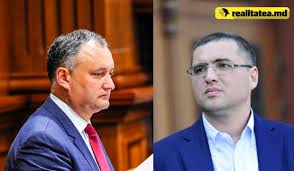(RFE/RL) Often it is easier to draw lessons from an election defeat than from a narrow victory. Moldova's pro-European ruling coalition has entered into talks to reassemble itself following the country's November 30 legislative elections, in which the three right-liberal parties won an estimated 54 mandates in the 101-seat parliament. But leaders must reckon with the fact that their parties polled significantly weaker than in 2009 — while the openly pro-Russian Socialist Party emerged as the strongest single party with a surprising 20.93 percent of the vote. […]
Political analyst Nicu Popescu of the European Union's Institute for Security Studies says voters continue to vote for change, just as they did in 2009 when disenchantment with the Communist Party and former President Vladimir Voronin led to the victory of the rightist parties. This time around, the new faces were Socialist leader Igor Dodon and businessman Renato Usatii, whose pro-Russian Patria party was banned for alleged campaign finance violations on the eve of the vote.
"The Moldovan electorate wanted change in 2009-10 and voted for the center-right, and they again wanted change in 2014," Popescu says. "But this time, change was embodied by Dodon and Usatii because they are the political players who presented new faces, a message with something new. This time, the desire for change came at the expense of the center-right forces."
See the full article ("What's Next For Moldova?") © Radio Free Europe/Radio Liberty










